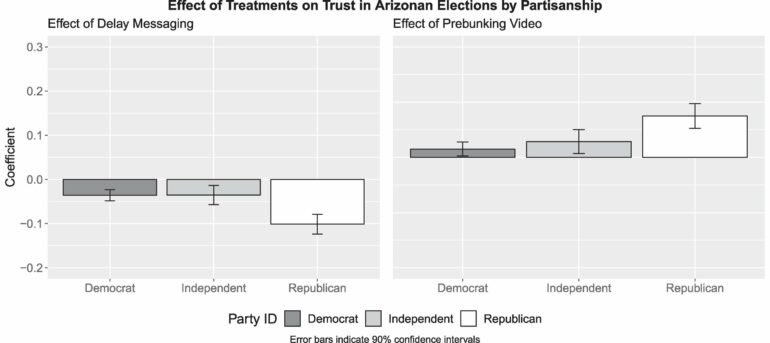A pre-registered survey of nearly 10,000 Americans shows that delays in declaring the winners of elections cause distrust in the electoral process, but that reassuring voters before polls close that delays are normal can prevent this distrust from taking root.
National elections in the United States were not definitively settled for days after election day in 2020 and 2022. There are legitimate reasons for such delays, including state rules about when counting can commence and laws about whether mailed ballots postmarked on election day must be counted. However, delayed results have been linked to suspicion about the fairness of elections.
Mackenzie Lockhart and colleagues surveyed Americans sourced from Cint, an online survey platform. The study is published in the journal PNAS Nexus. Some participants saw a 40-second “prebunking” video produced by the Arizona Secretary of State that explained that counting ballots accurately can take time. Others saw no video.
Participants were then told about the winner of the 2022 Governor’s race in Arizona. Some participants were also told that the results took six days; others received no information about election timing.
Next, all participants were asked “How much do you trust election results in the state of Arizona?” Those who were told about the delay but did not see the prebunking video were 6.5 percentage points less trusting than those who were not told about the delay and did not see the video. Those who were told about the delay and did see the prebunking video were just 2.6 percentage points less trusting than those who were not told about the delay and did not see the video.
According to the authors, simple, inexpensively produced messages from election officials can help prevent voter distrust when election results take extra time.
More information:
Mackenzie Lockhart et al, Voters distrust delayed election results, but a prebunking message inoculates against distrust, PNAS Nexus (2024). DOI: 10.1093/pnasnexus/pgae414
Citation:
Election delays impact voter trust but messages from election officials can help, survey finds (2024, October 15)



